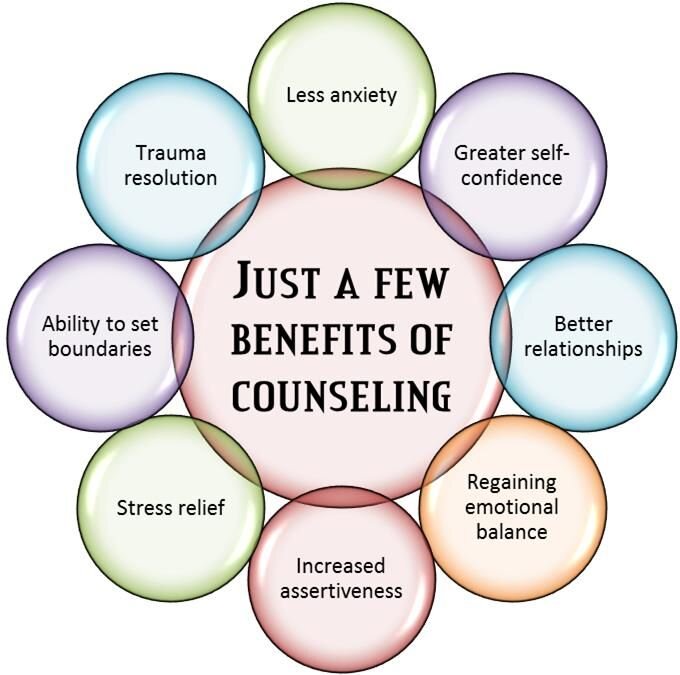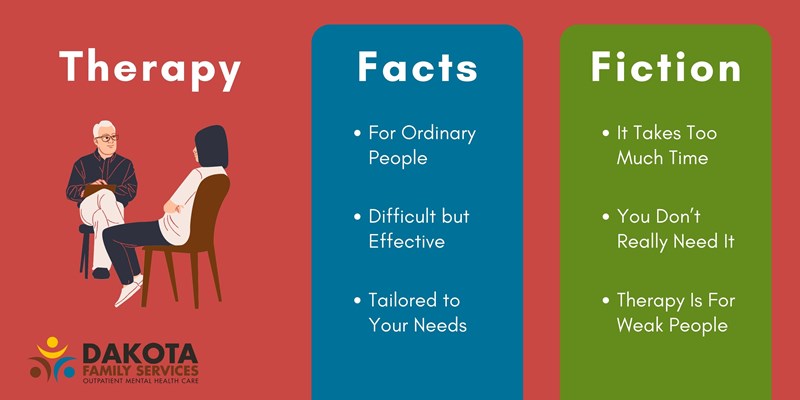Opening the Secrets of Mental Health And Wellness: A Summary of Therapy and Treatment Choices
Mental health is a complex and vital aspect of general well-being. Many counseling and treatment alternatives exist to attend to various psychological obstacles. Each approach uses distinct benefits and methods customized to private needs. Comprehending these options is crucial for any person seeking to enhance their psychological health. Cognitive Behavioural Therapy. What factors should one consider when checking out these opportunities? The answer may disclose a course to a much healthier mood
Comprehending Mental Wellness and Its Relevance
Mental health and wellness encompasses the psychological, psychological, and social wellness of individuals, considerably influencing how they assume, feel, and act. Its significance can not be overemphasized, as it impacts every element of life, consisting of partnerships, job performance, and total lifestyle. People with excellent psychological wellness tend to deal with anxiety better, maintain healthier partnerships, and make educated decisions. Conversely, inadequate mental health can cause emotional distress, impaired functioning, and numerous mental illness, which might need expert treatment. Comprehending psychological health and wellness is crucial for identifying the indications of distress and the requirement for assistance. Awareness also advertises empathy and minimizes preconception, urging people to seek aid when needed. By prioritizing mental health and wellness, communities can cultivate environments that support psychological health, eventually bring about much healthier, more resilient people. This foundation works as a crucial step toward efficient mental health and wellness therapy and treatment alternatives.
Sorts Of Counseling Techniques
Counseling techniques differ widely, each customized to satisfy the special demands of people seeking assistance. Among one of the most typical kinds are cognitive-behavioral therapy (CBT), which concentrates on determining and transforming adverse idea patterns, and person-centered therapy, which highlights empathy and acceptance. Psychodynamic therapy discovers subconscious processes and past experiences to understand existing habits, while solution-focused short therapy intends to identify options as opposed to explore problems.Additionally, family therapy addresses relational dynamics and communication within family members, promoting much healthier interactions. Team counseling gives a public space for participants to share experiences and sustain one an additional. Other approaches consist of existential therapy, which encourages individuals to discover meaning and objective, and art or music therapy, which uses imaginative expression as a healing tool. Each method offers unique strategies and viewpoints, enabling clients to discover the most suitable method for their individual development and healing journeys.
Checking Out Various Treatment Modalities
In the domain of mental wellness counseling, different therapy techniques use distinctive approaches to therapy. Cognitive Behavior Therapy stresses the link in between actions and ideas, while Psychodynamic Therapy explores unconscious impacts on psychological health. In Addition, Mindfulness-Based Techniques promote present-moment awareness as a way to boost psychological guideline and general psychological health and wellness.
Cognitive Behavior Therapy
Cognitive Behavior Modification (CBT) attracts attention as one of the most extensively practiced and looked into methods in psychological health and wellness treatment. This technique focuses on the affiliation in between feelings, ideas, and habits, emphasizing that changing negative idea patterns can cause improved psychological well-being and behavioral changes. CBT is structured, commonly involving a minimal number of sessions, and intends to outfit people with sensible abilities to manage their signs. It is effective for a variety of problems, consisting of anxiety problems, clinical depression, and post-traumatic stress and anxiety disorder. By using methods such as cognitive restructuring and direct exposure treatment, CBT fosters durability and empowers customers to confront challenges head-on, making it a beneficial choice in the landscape of mental wellness therapies.
Psychodynamic Therapy Strategies
Psychodynamic treatment strategies provide a deep expedition of the unconscious mind and its impact on behavior and emotional health. Rooted in Freudian concept, these methods stress the significance of very early youth experiences and subconscious problems. Through techniques such as free association, dream evaluation, and transference, individuals get insight right into their thoughts and feelings, fostering self-awareness and understanding. This therapeutic method motivates customers to discover repressed emotions and unsolved concerns, which can be critical in resolving current emotional difficulties. By checking out the interplay between previous experiences and present behaviors, psychodynamic treatment intends to promote psychological healing and personal development. Eventually, it gives a framework for individuals to explore complicated inner characteristics that influence their mental wellness.

Mindfulness-Based Methods
While conventional therapies typically concentrate on previous experiences, mindfulness-based techniques focus on present-moment understanding as a pathway to emotional well-being. These approaches, consisting of mindfulness-based cognitive therapy (MBCT) and mindfulness-based stress and anxiety reduction (MBSR), urge individuals to involve fully with their ideas and sensations without judgment. Experts discover to observe their frame of minds, cultivating a higher understanding of emotional triggers and actions. This technique not only reduces signs and symptoms of stress and anxiety and depression however likewise improves total psychological resilience. By integrating mindfulness workouts, such as reflection and deep breathing, clients grow a feeling of peace and quality. Ultimately, mindfulness-based techniques encourage people to navigate life's difficulties with boosted awareness and acceptance, advertising a healthier connection with their feelings and ideas.
The Role of a Therapist or Therapist
A knowledgeable therapist or therapist plays an important role in sustaining people with their psychological health and wellness trips. They provide a safe, non-judgmental room where customers can reveal their thoughts and feelings honestly. Couples Therapy. By employing different restorative techniques tailored to each individual's requirements, therapists aid clients explore underlying issues that may add to their mental health and wellness challenges.Therapists provide guidance and tools to manage tension, stress and anxiety, clinical depression, and other psychological difficulties. Their training outfits them to recognize patterns in actions and assumed procedures, assisting in understandings that lead to individual development. They additionally foster a strong restorative alliance, which is vital for effective outcomes.Moreover, specialists stay fully commited to privacy and honest standards, making certain a relying on atmosphere. Eventually, the duty of a specialist or therapist is to equip people, encouraging them to establish resilience and healthier coping techniques while steering with life's intricacies
How to Select the Right Therapy or Therapy Option
Selecting the ideal counseling or treatment option starts with evaluating specific requirements. It is necessary to comprehend individual obstacles and goals prior to discovering numerous therapy styles. This foundational action can greatly influence the performance of the picked strategy.
Evaluate Your Requirements

Just how can individuals effectively examine their psychological health and wellness requires when evaluating therapy or therapy options? They need to reflect on their emotional state and determine certain concerns, such as partnership, anxiety, or anxiousness difficulties. Journaling can be a beneficial device for tracking thoughts and sensations in time. In addition, people may gain from seeking responses from trusted friends or relative pertaining to viewed changes in actions or mood. It is likewise practical to assess personal objectives for therapy, such as enhancing coping abilities or getting insight right into personal patterns. Lastly, researching numerous therapy modalities and their viability for details needs can help in making an informed option. Ultimately, self-awareness plays a pivotal function in picking the ideal course for psychological wellness support.
Check Out Treatment Styles
While going across the diverse landscape of treatment options, people ought to consider different designs of counseling to find the very best suitable for their one-of-a-kind demands. Cognitive Behavior Treatment (CBT) concentrates on altering negative idea patterns, while Psychodynamic Therapy checks out past experiences and unconscious processes. Humanistic techniques emphasize individual development and self-actualization, cultivating a helpful atmosphere. Additionally, mindfulness-based therapies cultivate present-moment recognition, aiding psychological regulation. For those seeking framework, Solution-Focused Quick Treatment targets specific goals and services. Team therapy gives a public setup for shared experiences and support. Ultimately, individuals should certainly reflect on their choices, convenience levels, and certain difficulties, guaranteeing they choose a restorative design that resonates with their personal journey toward mental wellness.
Getting Over Barriers to Seeking Assistance

The Benefits of Therapy and Therapy for Psychological Wellness
Looking for assistance for psychological wellness challenges can bring about substantial improvements in total well-being. Therapy and therapy supply individuals with a risk-free space to discover their thoughts and sensations, promoting self-awareness and individual growth. These specialist services gear up clients with coping techniques and analytical skills tailored to their one-of-a-kind situations.Moreover, treatment can lower signs and symptoms of anxiety, depression, and various other psychological health and wellness problems, boosting emotional strength. Normal sessions advertise visit the website accountability and motivate individuals to set and attain individual goals. Via various healing modalities, such as cognitive-behavioral treatment or mindfulness methods, customers discover to reframe adverse ideas and develop healthier behaviors.Additionally, the restorative connection itself can be a resource of assistance, helping to combat seclusion and solitude. Generally, taking part in therapy and treatment is an aggressive action toward accomplishing psychological health, allowing individuals to lead even more meeting lives.
Regularly Asked Questions
The Length Of Time Does Therapy or Treatment Usually Last?
The duration of therapy or therapy differs substantially, often lasting from a few sessions to a number of months or years. Elements influencing this consist of the person's details requirements, the kind of treatment, and restorative goals.
What Should I Anticipate During My Initial Session?
During the first session, people can anticipate an introduction, discussion of issues, and the therapist's technique. They might complete assessments and establish objectives, fostering a secure setting for open interaction and building connection.

Are There Any Type Of Risks Associated With Treatment?
Therapy can involve risks, such as emotional pain, vulnerability, or confronting uncomfortable memories. While these obstacles might occur, they can likewise cause individual growth and recovery, making the healing procedure complex yet possibly gratifying.
How Can I Inform if My Specialist Is a Great Fit?
Identifying if a specialist is a good fit entails reviewing comfort, interaction design, and healing technique. Favorable rapport and development in the direction of objectives are signs of an ideal match, necessary for reliable mental wellness assistance.
Will My Insurance Coverage Cover Counseling or Therapy Sessions?
Figuring out insurance protection for therapy or treatment sessions often needs contacting the insurance service provider directly. Plans vary substantially, so people need to confirm benefits, co-pays, and any necessary pre-approvals before pursuing therapy solutions. Among the most common types are cognitive-behavioral therapy (CBT), which focuses on determining and changing negative idea patterns, and person-centered treatment, which highlights compassion and acceptance. Psychodynamic therapy checks out unconscious processes and past experiences to recognize visit the site current actions, while solution-focused quick therapy aims to determine solutions instead than investigate problems.Additionally, family treatment addresses relational characteristics and communication within family members, cultivating healthier communications. Other methods consist of existential therapy, which urges people to discover definition and function, and art or songs therapy, which utilizes innovative expression as a therapeutic tool. Cognitive Behavioral Therapy emphasizes the connection between habits and ideas, while Psychodynamic Treatment explores unconscious impacts on emotional health. Cognitive Behavioral Therapy (CBT) focuses on transforming unfavorable thought patterns, while Psychodynamic Treatment explores past experiences and subconscious procedures.